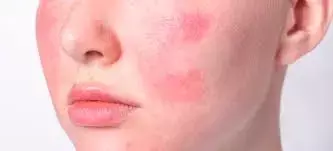- Home
- Medical news & Guidelines
- Anesthesiology
- Cardiology and CTVS
- Critical Care
- Dentistry
- Dermatology
- Diabetes and Endocrinology
- ENT
- Gastroenterology
- Medicine
- Nephrology
- Neurology
- Obstretics-Gynaecology
- Oncology
- Ophthalmology
- Orthopaedics
- Pediatrics-Neonatology
- Psychiatry
- Pulmonology
- Radiology
- Surgery
- Urology
- Laboratory Medicine
- Diet
- Nursing
- Paramedical
- Physiotherapy
- Health news
- Fact Check
- Bone Health Fact Check
- Brain Health Fact Check
- Cancer Related Fact Check
- Child Care Fact Check
- Dental and oral health fact check
- Diabetes and metabolic health fact check
- Diet and Nutrition Fact Check
- Eye and ENT Care Fact Check
- Fitness fact check
- Gut health fact check
- Heart health fact check
- Kidney health fact check
- Medical education fact check
- Men's health fact check
- Respiratory fact check
- Skin and hair care fact check
- Vaccine and Immunization fact check
- Women's health fact check
- AYUSH
- State News
- Andaman and Nicobar Islands
- Andhra Pradesh
- Arunachal Pradesh
- Assam
- Bihar
- Chandigarh
- Chattisgarh
- Dadra and Nagar Haveli
- Daman and Diu
- Delhi
- Goa
- Gujarat
- Haryana
- Himachal Pradesh
- Jammu & Kashmir
- Jharkhand
- Karnataka
- Kerala
- Ladakh
- Lakshadweep
- Madhya Pradesh
- Maharashtra
- Manipur
- Meghalaya
- Mizoram
- Nagaland
- Odisha
- Puducherry
- Punjab
- Rajasthan
- Sikkim
- Tamil Nadu
- Telangana
- Tripura
- Uttar Pradesh
- Uttrakhand
- West Bengal
- Medical Education
- Industry
Non-prescription anti-redness regimens effective in reducing facial redness in patients with rosacea, finds study

Non-prescription anti-redness regimens are effective in reducing facial redness in patients with rosacea finds a study published in the Journal of Drugs in Dermatology.
The treatment of rosacea is complicated as multiple pathogenic factors in play result in a myriad of clinical signs and symptoms including facial redness. The primary objective was to evaluate the efficacy and tolerability of a non-prescription anti-redness regimen in patients with rosacea. Thirty subjects with rosacea-induced facial erythema were enrolled in this single-site, monadic study. The test regimen consisted of a treatment serum, redness-reducing moisturizer, and sunscreen.
The test products are formulated with ingredients curated to address the multifactorial pathogenesis of facial redness. Investigator and subject self-assessment for efficacy and tolerability were performed at baseline, weeks 4 and 8. Non-invasive assessments for facial redness and skin hydration were conducted at all time points. Results: Investigator grading showed significant improvement in facial redness of 21% at week 4 and 32% at week 8. Skin's appearance improved as early as 4 weeks while at 8 weeks there was a statistically significant improvement in fine lines 15%, radiance/brightness 37%, tactile roughness 44%, visual roughness 41%, and 26% in overall appearance. Non-invasive assessments showed statistically significant improvement in skin hydration of 28% at week 4 and facial redness of 21% by week 8. No tolerability issues were identified by the investigator.
Patients with rosacea often turn to over-the-counter products to reduce facial redness and improve the skin's appearance. In this study, a cosmetic skincare regimen designed to reduce facial redness demonstrated efficacy and tolerability in subjects with rosacea.
Reference:
Farris PK, Gerstein FH, Baldwin HE, Draelos ZD. A Cosmetic Regimen Formulated to Address the Multi-Modal Pathogenesis of Rosacea Demonstrates Efficacy for Treating Facial Redness and Skin's Appearance. J Drugs Dermatol. 2024 Sep 1;23(9):757-763. doi: 10.36849/JDD.8460. PMID: 39231085.
Dr. Shravani Dali has completed her BDS from Pravara institute of medical sciences, loni. Following which she extensively worked in the healthcare sector for 2+ years. She has been actively involved in writing blogs in field of health and wellness. Currently she is pursuing her Masters of public health-health administration from Tata institute of social sciences. She can be contacted at editorial@medicaldialogues.in.
Dr Kamal Kant Kohli-MBBS, DTCD- a chest specialist with more than 30 years of practice and a flair for writing clinical articles, Dr Kamal Kant Kohli joined Medical Dialogues as a Chief Editor of Medical News. Besides writing articles, as an editor, he proofreads and verifies all the medical content published on Medical Dialogues including those coming from journals, studies,medical conferences,guidelines etc. Email: drkohli@medicaldialogues.in. Contact no. 011-43720751


